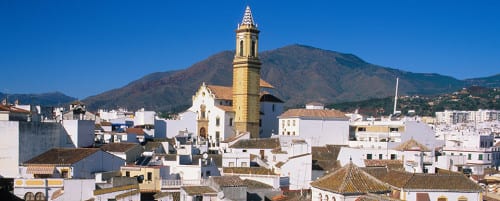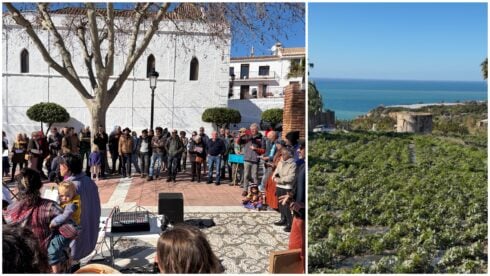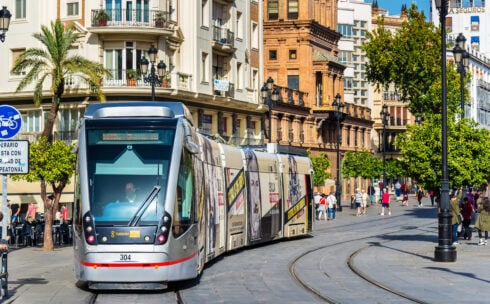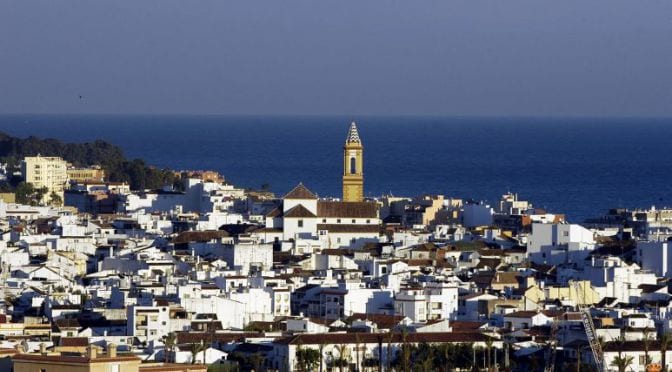
A WOMAN holding the world in her hands above the blue Mediterranean sea.
This is a fitting image for Estepona and is the subject of the town’s latest mural.
Called Atlantis, it is the 49th work in the town’s series of street art, located up the steep hill of Avenida de los Reales, which offers unparalleled views down to the sea.
But this new painting by Jose Fernandez Rios, unveiled on International Women’s Day, reveals more than just a celebration of women’s contribution to society.
It captures the constantly evolving nature of Estepona and its impressive global credentials, despite being a medium-sized town.
Within Estepona’s mural series alone, you have the largest vertical mural in Europe, and even the first braille mural in Spain, using ceramic pieces, to assist the learning of the visually impaired.

Perhaps one of the most unusual examples of Estepona’s worldwide appeal is Disney’s discovery of the area in the early 1990s – the town was the original choice for Eurodisney but was pipped to the post by Paris.
But away from the would-be theme park dreams of decades gone by the real beating heart of this charming town.
A short walk along the marble pavements of Estepona’s Calle Teraza brings you to the charming and aptly named Plaza de las Flores (square of the flowers).
In this hidden hive of activity you will find the tourism office, with maps for all kinds of excursions, including the murals tour and a host of reasonably-priced restaurants and cafeterias.
Also nestled among the flowers, and spilling out onto Calle Teraza, are a handful of stylish clothes shops, mixing independent and quirky stores with more famous brands such as Mango.
Further into the historic centre and you will notice that the town has ramped up its appeal with a ‘hanging garden’ of geraniums sprouting from multi coloured pots on every wall of every street.
And it went one better than the plant pots a few years ago with its exotic glass-domed orchidarium.
The futuristic greenhouse with more than 8,000 species of orchids and three waterfalls has welcomed more than 250,000 people each year and they continue to arrive by the coach load.
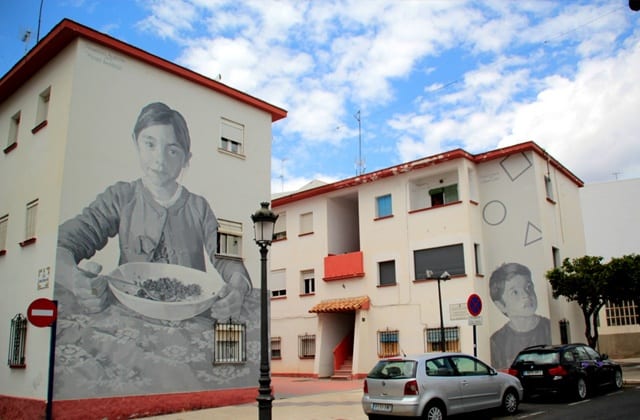
Lorena Cano Bedoya, 38, who moved to Estepona in 2008 from Colombia, lives just around the corner from the magnificent orchid house with her seven-year-old son Diego, and treasures the greenery on her doorstep.
“Estepona is a town with a very special magic,” she tells me, “starting with its climate, its sea, its mountain.”
Sandwiched between the ocean and the high sierras of Bermeja, Estepona does surf and turf in style.
“It is a town that gives you the most beautiful and quiet places to discover,” she adds, from her house that is just a few minutes walk from La Plaza de las Flores.
Most of all Lorena treasures the life here for her active young son.
“Diego is a child who likes sports and reading classical music,” she says.
“We dedicate days for those activities and I try to educate him without screens, we prefer to spend time enjoying doing things together outside.”
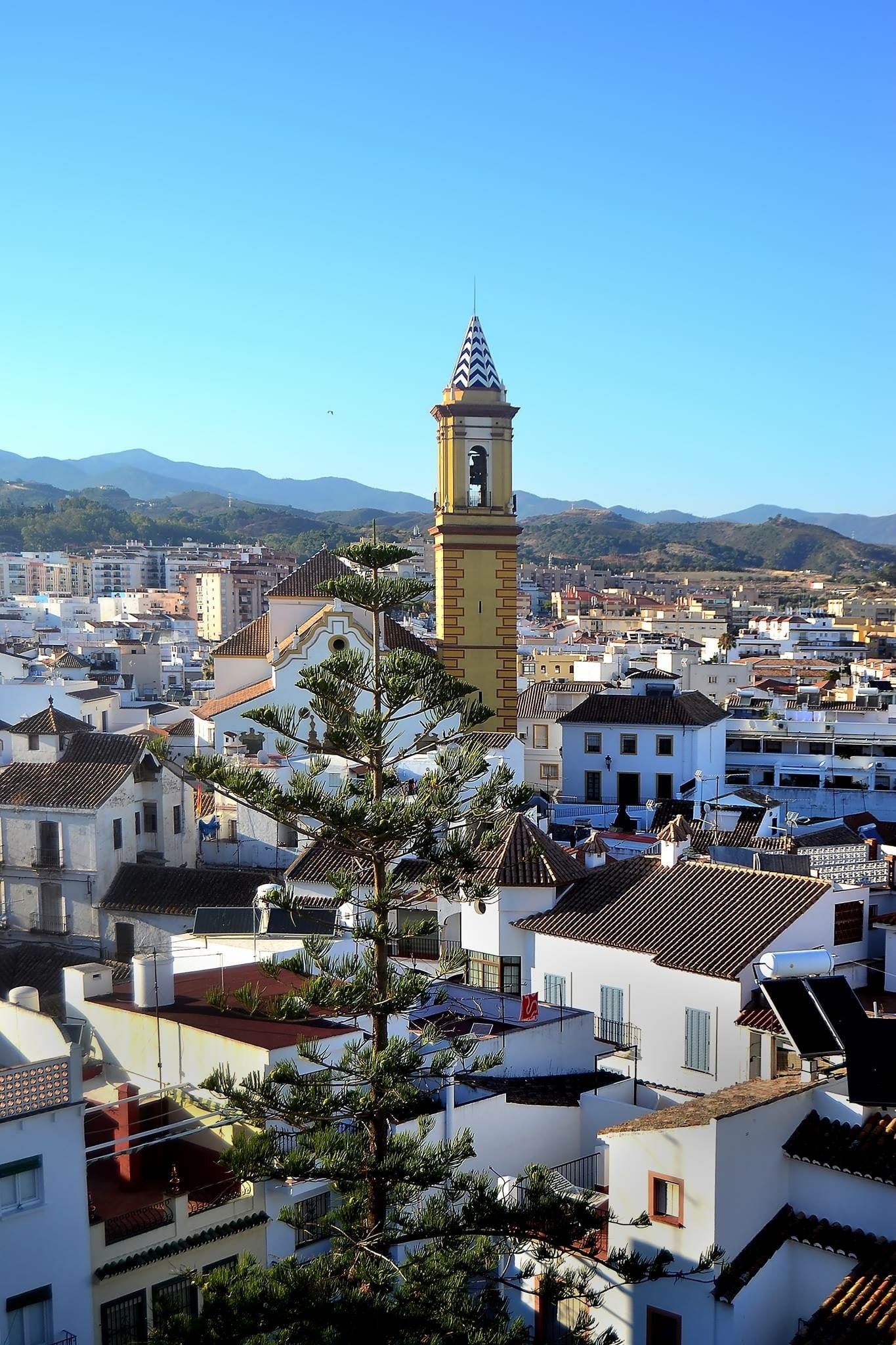
And its idyllic outdoor spaces and winding streets are perhaps why Estepona is often described as one of the last ‘authentically’ Spanish resorts on the costa.
It has somehow managed to stave off the whitewash of celebrity yachts and designer brands of Marbella, while also avoiding the takeover of ‘Little Britain’ in the likes of Benidorm.
Maybe that is in part thanks to its Mayor, José María García Urbano of the PP, who has spent €100 million on public works since he took over in 2011.
During his eight-year tenure, he has transformed Estepona into a green paradise for those who live here, while still attracting a steady stream of foreign tourists.
The latest edition to the some 700,000 square metres of new green space, is a public park complete with slides and wildlife area up near the hospital.
This is part of the ‘Estepona, Garden of the Costa del Sol’ project, which is progressing in time for the flood of summer tourists.
And the high visitor numbers are unsurprising, and not only because of Estepona’s 325 yearly days of sunshine, 21km of coastline, 17 beaches, 12 chiringuitos, eight golf courses and more spa hotels than you can shake a fluffy white towel at.
Fresh air fiends can sail in the port, go horse-riding, do high ropes at Selwo Adventure park, play padel in the poligono or kick back with a cocktail and their toes in the sand at one of its glorified beach shacks.
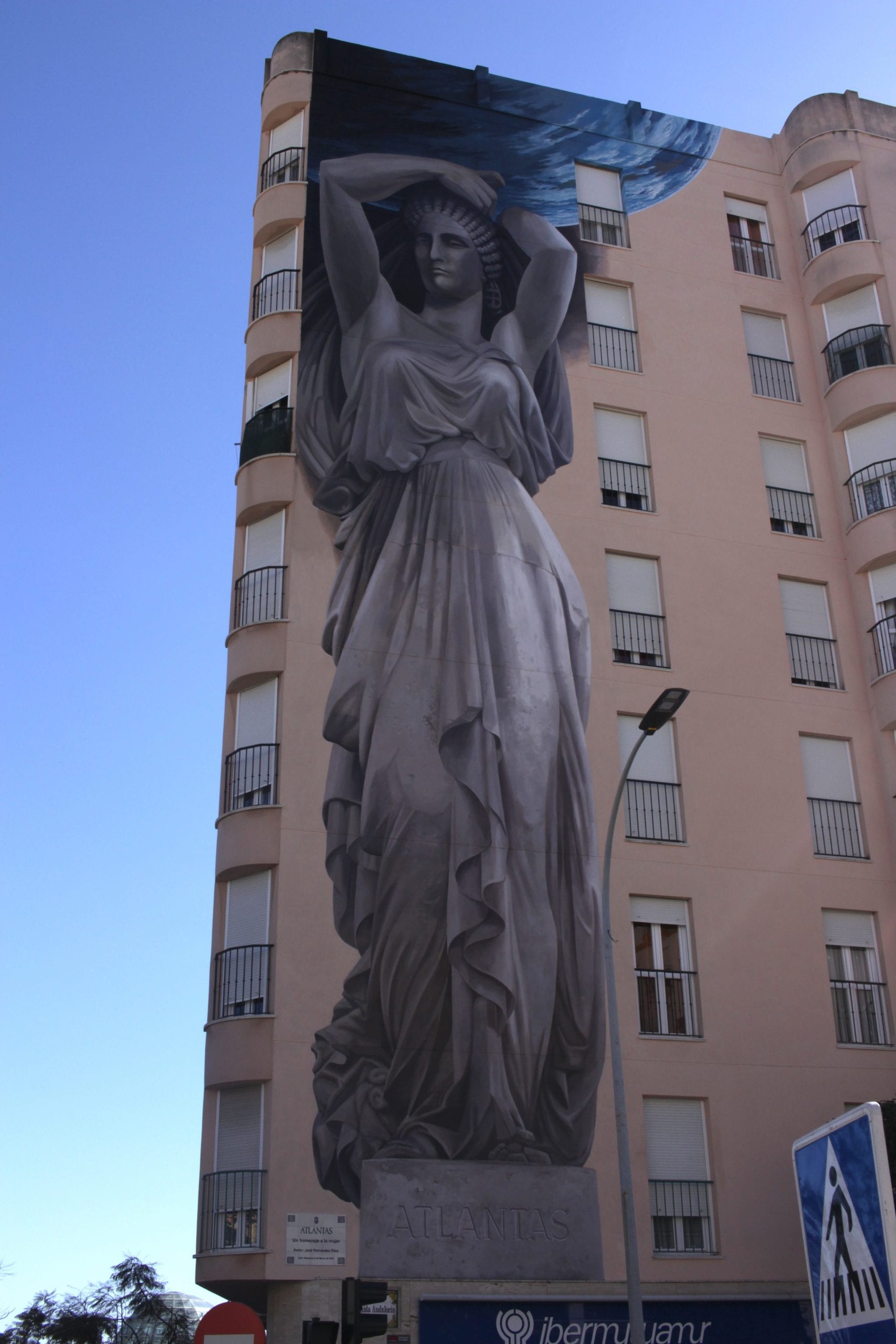
One chiringuito owner, Erwin Vanderdonck, 52, who owns Palm Beach on Playa de la Rada, is certainly gearing up for the summer.
This beach bar, where chart-topping girl group Las Ketchup recorded their video for Asereje, has just undergone a huge redevelopment.
“We should be open by the end of May,” Erwin tells me, “It’s going to be beautiful.”
Originally from Amsterdam, he made the jump 17 years ago, swapping the ‘mayhem of finance’ in London for the ‘authentic feel’ of this Costa del Sol gem.
“The main centre for nightlife used to be the port,” he says, “but now there is a shift towards the centre, with new bars opening.”
Playa del Cristo, the next beach along, is in the port described by Erwin, and is set on a sheltered bay with two pleasant watering holes.
In fact, the fishy fare served by these ramshackle beach huts is surprisingly good.
After supper, pick up an ice cream on Calle Real or hit the bars: Louie Louie’s is always guaranteed for a good boogie or if you prefer to watch, El Patio puts on a colourful feast of flamenco on Friday nights for €20.

And although the centre of town has seen a recent nightlife boom, Estepona’s bright young things still flock to see the bars and clubs at the port on weekends.
Bartenders freehand-pour drinks according to ye old Spanish ‘say when’ system (hic) and will only turf revellers out towards 6am.
After that you can freshen up with a quick swim before breakfast, then face up to a long hot day of paying for the night before – face down on a beach towel.
Alternatively, if you went to bed on time, there are four excellent markets to get up for.
Three are held on Sunday mornings: one at the port (9am-2pm) and a rastro in the bullring (10am-2pm).
On Wednesday mornings (9am-2pm) Avenida Puerta del Mar market is the place to be.
Or, why not head into the old town’s twisting uphill streets, which offer a glimpse of life as it used to be in Estepona.
While the paseo brings you right back to the present with its lycra-clad joggers, giant chess sets and intricate sand sculptures, beneath the cosmopolitan surface you’ll find a lady with a past who has been flirting with civilisation and repelling invaders since neolithic times.
Her story is told through a scattering of watchtowers built to ward off the Moorish invaders, the Arab-built clock tower and 16th century castle ruins.
Estebbuna was founded during the golden age of the Caliphate of Cordoba in the 10th century.
Destroyed by the conquering Christians in the 15th century and rebuilt by Queen Isabella and King Ferdinand almost a century later, King Philip V granted the town a charter for 600 families in 1728.
Compare that to the 65,000-plus residents today – a figure that more than triples in summer months.
And rentals do fill up quickly at this time of year, so book early if you want to discover why Estepona should be number one on your Costa del Sol bucket list.
Click here to read more Spain News from The Olive Press.

